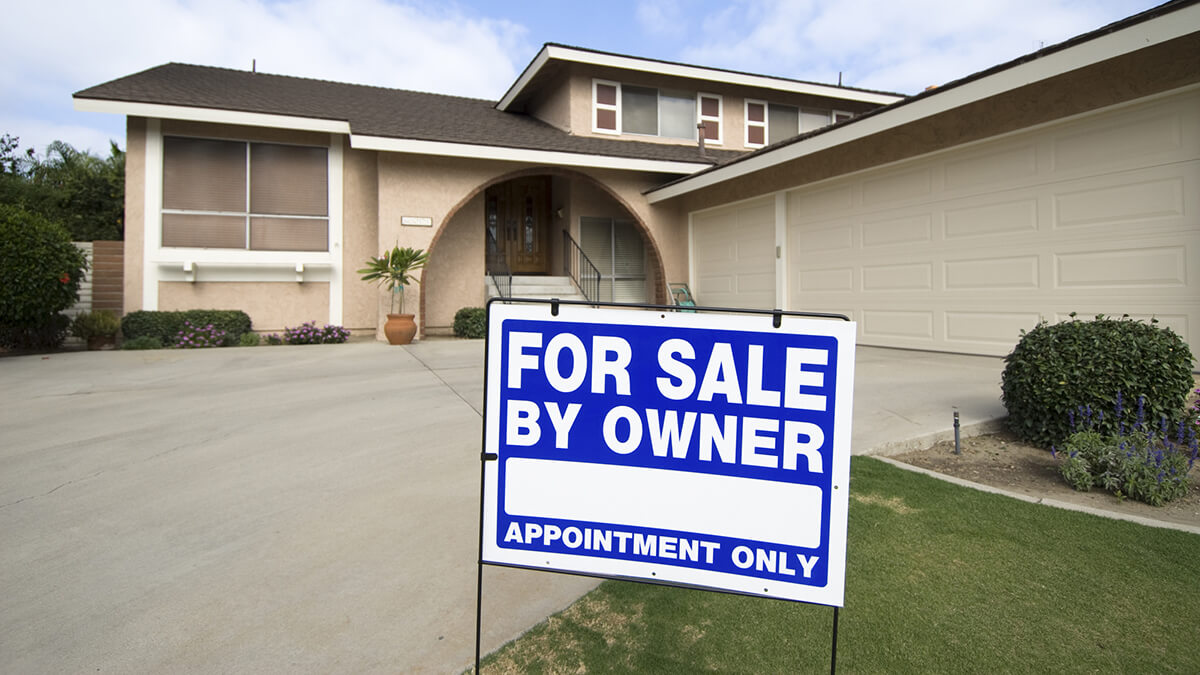Selling a rental property requires navigating market conditions, tenant management, and tax implications, such as capital gains tax. In some areas, capital gains taxes can be as high as 37%, which is why timing and financial planning are key to maximize selling profits.
Evaluating equity position should be your first step. This is the difference between your property’s market value and the outstanding mortgage balance, which represents your potential profit. If your property sells for $300,000 and you owe $100,000, for example, then your equity is $200,000. High equity suggests it might be a good time to sell.
If you’re ready to capitalize on the current market conditions, iBuyer.com provides instant market insights and cash offers, making it easier to decide when to sell.
Selling a Rental Property
Compare Cash Offers from Top Home Buyers. Delivered by Your Local iBuyer Certified Specialist.
One Expert, Multiple Offers, No Obligation.
What is a rental property?
Rental properties are some of the best investments you could make. Rental properties can come in all shapes and sizes but are generally second properties that can be rented out every month. While some people rent out a portion of their home, others have entirely separate properties that they rent out for a monthly fee.
This is a great way to diversify your income and generate an income off an asset that you own. Rental properties are also a great way to build wealth for you and your family as the rent that you collect from the property can help pay off the mortgage or loan that you may have taken to buy the home in the first place.
In this way, rental properties are some of the best ways to passively build your wealth. However, a seller’s market can quickly change things, as the increased price that you could get for your home may outweigh its income-generating benefits.
Should I sell my rental property?
There are a few factors to take into consideration when deciding whether or not to sell your rental property. The first being if you have significant equity in the property. Equity in the home refers to the difference between the home’s value and the amount of money you still owe on it.
This difference is the tangible profit that you would benefit from when you finalize the sale, as you would first need to pay the bank or mortgage company. For example, if your home sells for $100,000 but you owe $40,000 on it, this means you have an equity position of $60,000.
If you were to sell your home for $100,000 today, you would then pay the mortgage company their $40,000 and go home with the remaining $60,000. In this way, the equity of your home indicates how much you stand to profit from selling the home.
Look at buyer demand
Buyer demand is the single most influential factor when determining the price of a property. This is the reason why a one-bedroom apartment in New York City is so much more expensive than the same apartment in Ohio. New York City is home to millions of people, all fighting to stay as close to the city as possible.
This demand is what allows homeowners to raise the price of their property. If buyer demand is high, the selling price for your home will increase. This means that your $100,000 home could be worth $150,000 overnight. The important thing to realize about this is that the $40,000 that you owe on the home stays exactly the same.
If you decide to sell the home, your take-home profit will effectively increase from $60,000 to around $110,000 overnight. This change is not minor, as you would walk away with twice as much money at the end of the day.
Consider the income
A rental property is not just an asset, it’s also a source of income. Renting out your additional property is often a great way to diversify your income and bring in more money every month. With this in mind, think about what you could do with the proceeds of the sale.
The best way to see whether the sale is the right decision is to see if the profit from the sale could generate the same income through other investments. While traditional bank accounts don’t offer much in terms of interest, there are investments such as fixed deposits and the stock market that could potentially provide you and your family with better returns.
While the stock market can be a risky place, general ETFs and diversified investments generally provide returns greater than 5% every year. You can talk to a financial advisor to create a mock portfolio for you. This will give you a good idea of how the proceeds of your sale could potentially generate a passive source of income.
Once a professional has taken a look at the numbers, you can compare the proceeds from the portfolio with the current rent that you are collecting. When comparing these numbers, don’t forget to factor in the costs of owning a second home.
These costs include property taxes and maintenance costs that the tenants don’t pay directly. Once these costs are deducted, you can accurately compare the two options. If you find that you can make more money from having the cash compared to the rental property, it’s a clear sign that you should sell.
Decreasing rental prices
If the rental prices in your area are decreasing, this could have a negative effect on both the value of your property and the amount of money you can make from renting it out. The market rate for rent in the area is a very important metric to keep an eye on.
If the market price is steadily going down, it may be wise to sell the property while you have the chance. While many may think that selling a rental property takes ages, it does not have to. There are online platforms like iBuyer that specialize in providing expert services to help you find qualified buyers in the blink of an eye.
This means that as soon as you think it’s time to sell, you can make the sale happen.
How to sell a rental property
There are tons of ways to sell a rental home nowadays. While you may have needed to post an advert in the paper back in the day, modern solutions have made it easier than ever before to find potential buyers without having to raise a finger.
Modern platforms like iBuyer.com can even give you an accurate estimate of what your home is worth online. This helps speed up the entire process so that you can find a serious buyer in the blink of an eye.
Can I sell my rental property with tenants in it?
If your home is being rented out, you can still sell the property. Although it’s not compulsory, many advise that your tenants should be the first people that you offer the property to once you decide that you want to put it on the market.
This is because tenants often fall in love with the home that they rent and would buy the home if they were given the opportunity to. This also gives you a great place to start as you try to find a qualified buyer for your home.
If your tenants don’t want to buy the property but wish to stay there, you have a few options. You can either wait for their lease to end to finalize the sale or you could offer the entire home inclusive of the rental agreement.
For the latter option, this would essentially mean that the entire income-generating property would change hands. The tenants would remain in place and the new owner would accept the rental payments every month. This works if the buyer wants to purchase the home as an investment property and not to live in it immediately.
Capital gains taxes
Capital gains taxes (CGT) is a special levy added to the profits of the sale of an investment. This applies to a wide range of investments and assets such as stocks, shares, and even investment properties. These taxes can range from 0% for long-term investments all the way to 37% for short-term investments.
The rate that you’re charged for capital gains is entirely dependent on how long you have held that asset or investment, along with your personal financial standing. If you have held the investment for longer than a year, you’d have to pay short-term capital gains tax.
Short-term capital gains tax is calculated using the taxpayer’s personal income tax brackets. This means that wealthy investors that earn a lot of money can pay up to 37% in capital gains tax. This tax is mainly targeted at investors looking to profit off sales frequently.
This includes day traders on the stock market and real estate developers that invest in properties to flip them for a profit in a few months’ time.
How to sell rental property without paying taxes
The best way to reduce your tax liability is to deduct as much as you can and offset any losses you have made during the same tax year. Offsetting losses can be complicated but is one of the most effective ways to get away with paying little to no capital gains tax.
This works by listing other investments that you have made during the same year that effectively lost you money. For example, if you want to sell your beach house for $100 but you purchased it for $80 earlier in the year, you’d have to pay capital gains tax on the $20 profit you stand to make.
However, if you purchased another lake home in the same year for $60 but it has lost value over the year and is worth only $40 today, you have effectively lost $20 with that transaction. In this case, you can show that you lost $20 in one transaction and can then offset this with the $20 that you stand to profit from the sale of your beach house.
Since you lost and gained $20, you would not have made a profit or financial gain that you could be taxed on.
What expenses are deductible when selling a rental property?
The other way to decrease your tax liability is to deduct as many expenses as you can when selling a rental property. The most common expenses to deduct are administration costs, the interest that you paid on the mortgage, and essential repairs that you may have done on the property.
You could do a few extra repairs before selling the home to increase your deductions. However, this would also increase the value of the property, thus increasing your tax liability in the process.
What closing costs are tax deductible?
Closing costs refer to the administrative and financial costs associated with finalizing the sale or purchase of a home. In many cases, this can amount to around 3% to 5% of the value of the property. While not all closing costs are tax deductible, a few are.
Closing costs that you can deduct include property taxes and management fees that you pay while your sale was pending. These expenses can be deducted from your taxes, effectively saving you thousands of dollars in the process.
Thinking about selling a rental property?
There are tons of factors to take into consideration when selling a rental property. However, it’s important to understand how to navigate the expenses and taxes so that you can maximize how much you profit off the sale.
If you have any questions or want to learn more about how platforms like iBuyer can help you value your home and find qualified buyers, feel free to contact us today. You can also make use of our website for more information and tools to help through the process.




